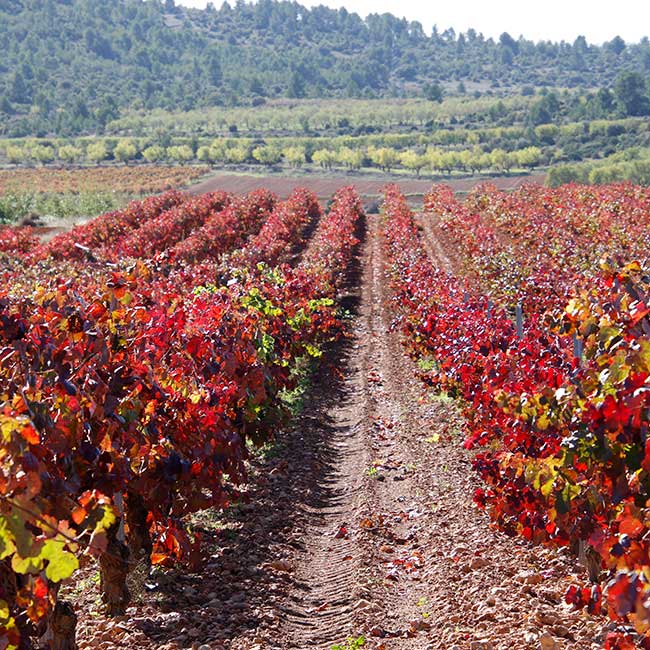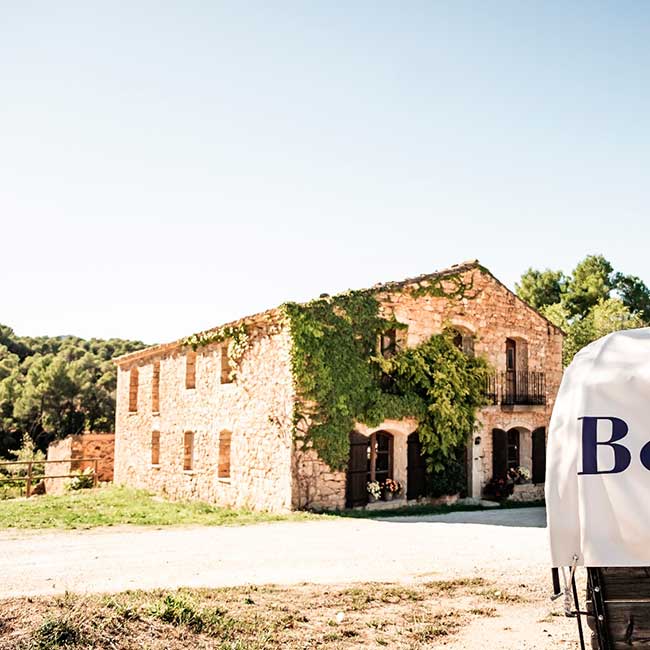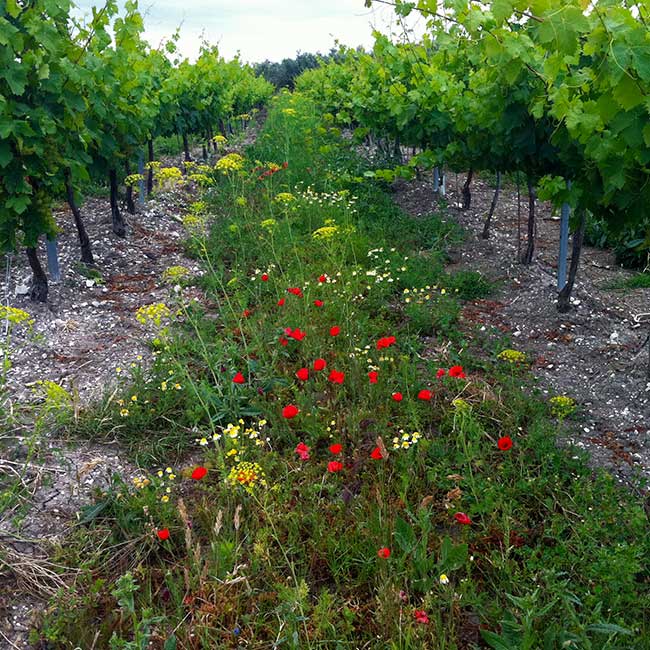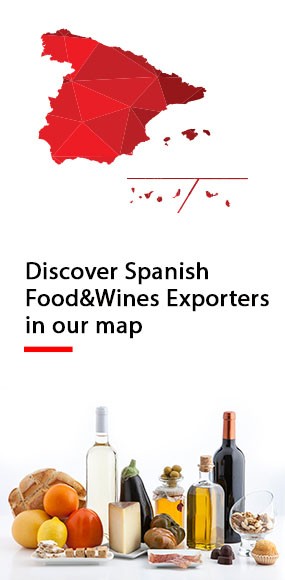.png.transform/rendition-xs/image_image%20(1).png)
Organic Wines in Spain: A Market with Scope for Growth
Production and consumption of organic wine has really rocketed in the last decade. According to an IWSR Drinks Market Analysis, over a billion bottles of organic wine will be consumed around the world by 2022. Did you know that Spain is the country with the largest area dedicated to #organic vineyards?

Organic wine production in Spain
Spain is currently home to over 100,000 hectares allocated to organic wine growing, making it the EU country with the largest area dedicated to organic vineyards. In the last eight years, the number of organic wineries in Spain has more than doubled, from 408 in 2009 to 939 in 2017, according to Organic Wine Iberia. By now that number surely exceeds 1,000.
According to another IWSR Drinks Market Analysis, Spain is expected to increase production by more than 70% between 2018 and 2023, from 361 million bottles to 613 million bottles, positioning it as the world’s second-largest producer of organic wines, after Italy. It will also be a global leader in terms of land allocated for organic vineyards, increasing from 89,600 hectares in 2018 to 160,000 by 2023, reflecting growth of almost 80% and outstripping its two biggest rivals: France, which is expected to have 115,000 hectares and Italy, with 96,320 hectares.The main organic wine producing regions in Spain at present are Castile-La Mancha, Catalonia, Murcia and Valencia, although Andalusia has experienced notable growth in the last year. And although domestic consumption is on the rise, at the moment the bulk of production is exported, the primary destinations being Germany, Austria, Benelux, Switzerland, the Nordics, Japan, China and South Korea.
What is organic wine, exactly?

In organic wine production, no gene technology or chemical-based fertilizers, pesticides, fungicides or herbicides are used, and the approach is one of “minimal intervention” with a view to producing a wine that is as close to nature as possible. They're made with certified organically grown grapes, and winemakers have to work alongside nature, and not against it, to produce their wines.
Winemakers don’t use unnatural yeasts, and sulfites may or may not be used in very small amounts. The European Union even has a regulation in place that sets out winemaking practices for organic wines. The resulting wines generally have a strong personality and organoleptic qualities, at least partly attributable to the fact that there are no synthetic additives interfering with the grapes’ expression. They are not to be confused with biodynamic wines, for which grapes are farmed while taking into account lunar cycles and astrological influences, or with natural wines, which are made without adding yeast and with little-to-no additives during fermentation, although both are made with organic grapes.
Small producers of organic wine in Spain
While many of Spain’s biggest wineries and leading winemakers have added organic wines to their portfolios, there’s plenty of interesting activity from small producers. Venta D’Aubert, in Teruel, moved into organic wine production when the team saw firsthand the effects of farming with chemicals. They have been producing red and white organic wines since 2013, many of which have received top scores in the Guia Peñin and prestigious accolades in international organic wine competitions.
There are plans to ramp up production in the future, and the company current exports around 70% of its 60,000 to 80,0000 bottles, the main markets being EU countries. According to winery administrator Laura Sorolla Jardi, “Our organic vineyards yield better quality grapes while also improving the soil and native fauna. This, in turn, allows us to produce wine more ‘naturally,’ and we expect organic wine production in Spain to continue to increase in the coming years.”
Organic wines from Montilla-Moriles

Family-run Bodegas Robles, in DO Montilla-Moriles in Córdoba (Andalusia), invested in organic wine even earlier, back in the 1990s. According to the owner, Francisco Robles, “It was a risky and very forward-thinking decision at the time. Back then organic winemaking wasn’t regulated, was relatively unknown and was not very well understood within the industry. However, with time, we’ve seen that going organic not only positioned us at the forefront of the sector, but it also notably increased the quality of all our wines as evidenced by the many distinctions our organic wines have received over the years at leading international wine competitions.” At present, 100% of production is organic, and the company is fully committed to innovation. Its most recent traditional sparkling wine, for example, was made with 100% organic Pedro Ximénez grapes.
At Altolandon winery in Cuenca, owners Manolo Garrote and Rosalia Molina knew from the get-go that they wanted to go the organic route. As a result, they were the first company in Spain to obtain organic certification for the entirety of their expansive vineyards, which currently extend over 200 hectares.
And although they, too, expect organic wine consumption to increase in Spain, they believe that organic wines and those made with minimal intervention are much more valued by consumers in other countries, as reinforced by the fact that they export 85% of production.
Showcasing organic wines from Spain
There are an increasing number of places for organic wines to “see and be seen.” Fenavin is a major wine fair in Spain that brings together wineries and cooperatives to promote the industry, both nationally and internationally. It includes a separate space to showcase organic wines. In 2017, around 400 wineries participated in this area, twice the figure in 2016.
Spain also hosts a small international organic wine fair called Five-Bio. This annual two-day event brings together wineries from all over Spain as well as restaurants, distributors, importers, exporters, enologists and producers and includes a visit to several wineries to learn more about their processes firsthand.
Internationally, one of the main industry events for winemakers is called ProWein, held every year in Düsseldorf, Germany. ProWein includes an Organic Wine Hall specifically for this segment of the market, with a tasting area for award-winning organic wines. Trends at the 2019 edition include sustainability and the use of more natural winemaking techniques, putting organic wines squarely in the spotlight.
The path forward for Spanish organic wines
Although the area dedicated to organic vineyards only accounts for about 11% of the total in Spain, there is every indication that this will increase in the coming years. And when it comes to raising the profile of organic wines among domestic consumers, Bodegas Robles has made an important distinction. According to Mr. Robles, “The best way to promote these wines is to underline the strong connection between the land where they’re produced and the people who make them.”
That is, after all, what makes them unique: winemakers harnessing the full power of nature to make their wines.
Text: Samara Kamenecka /@ICEX.

